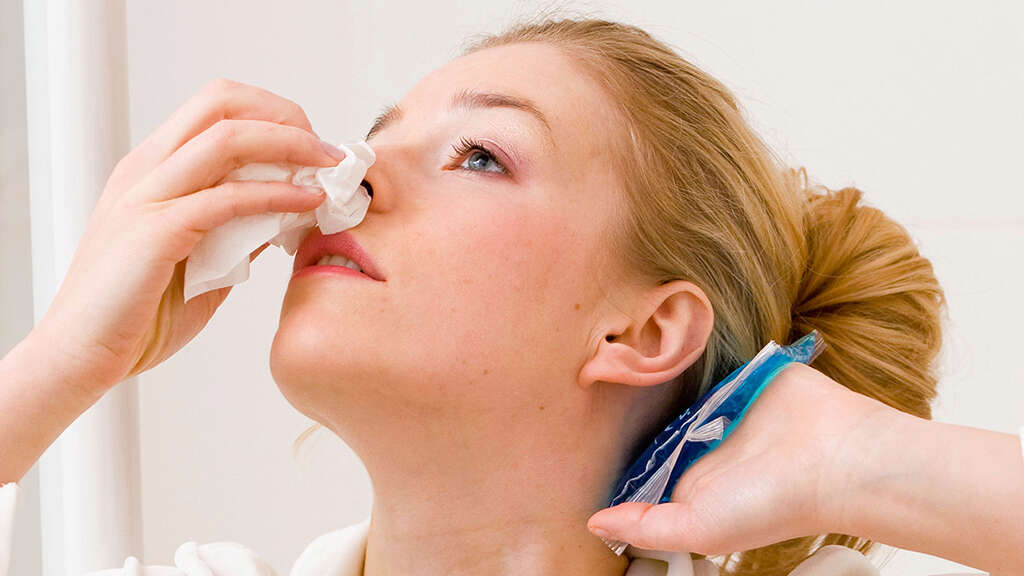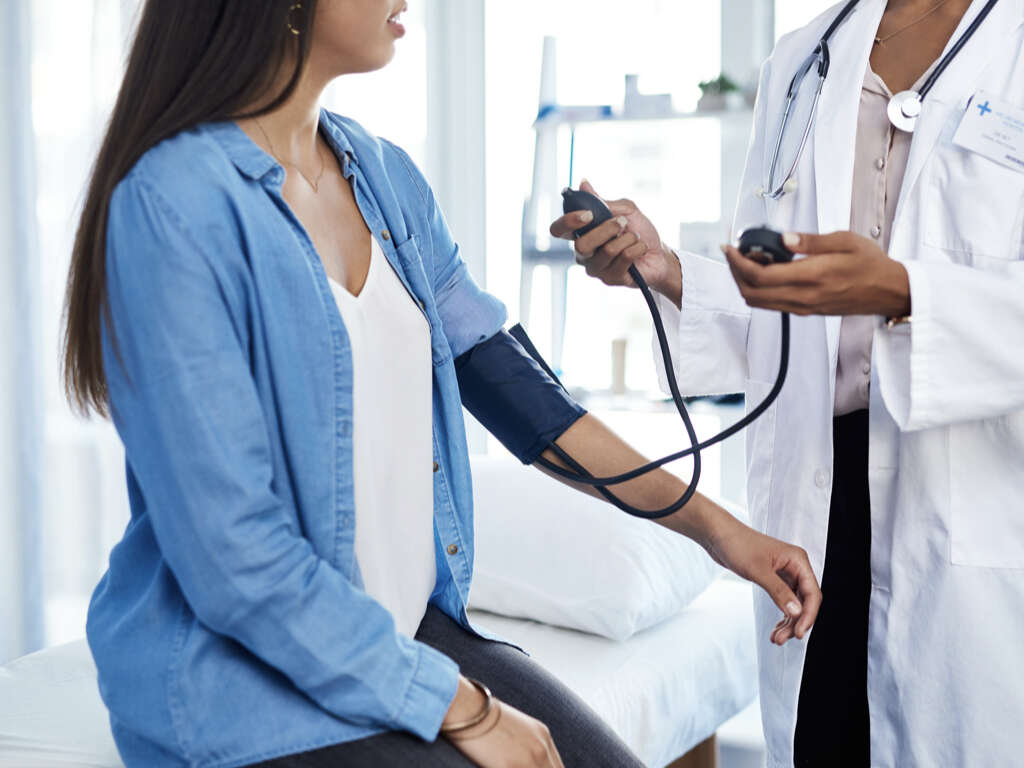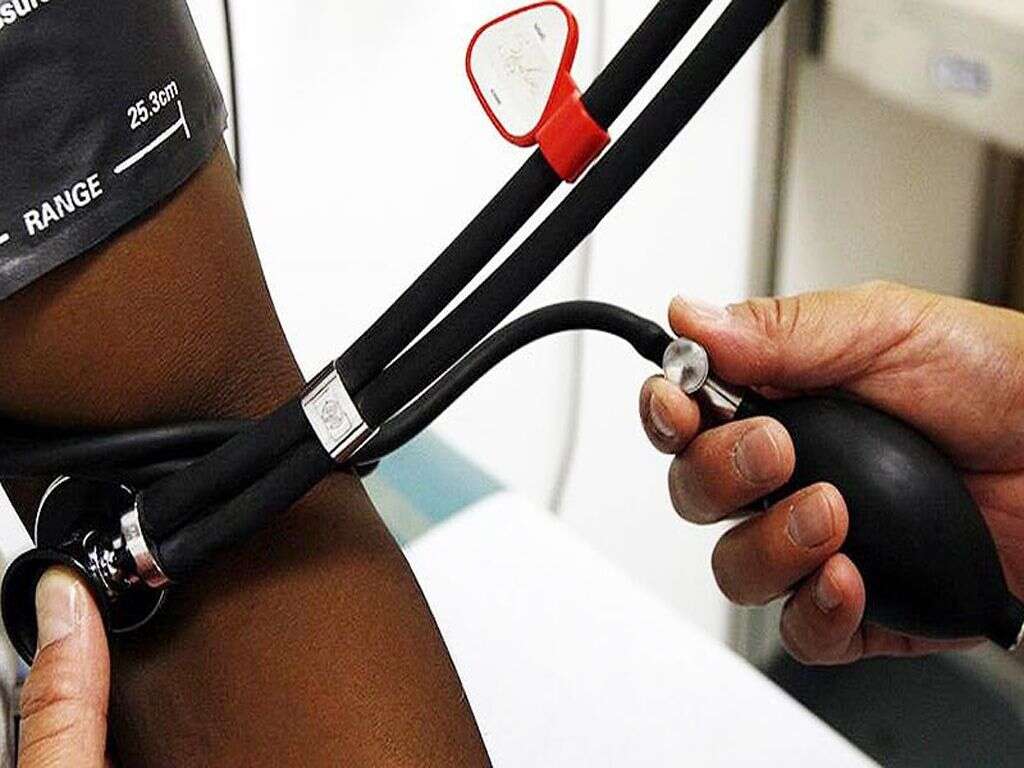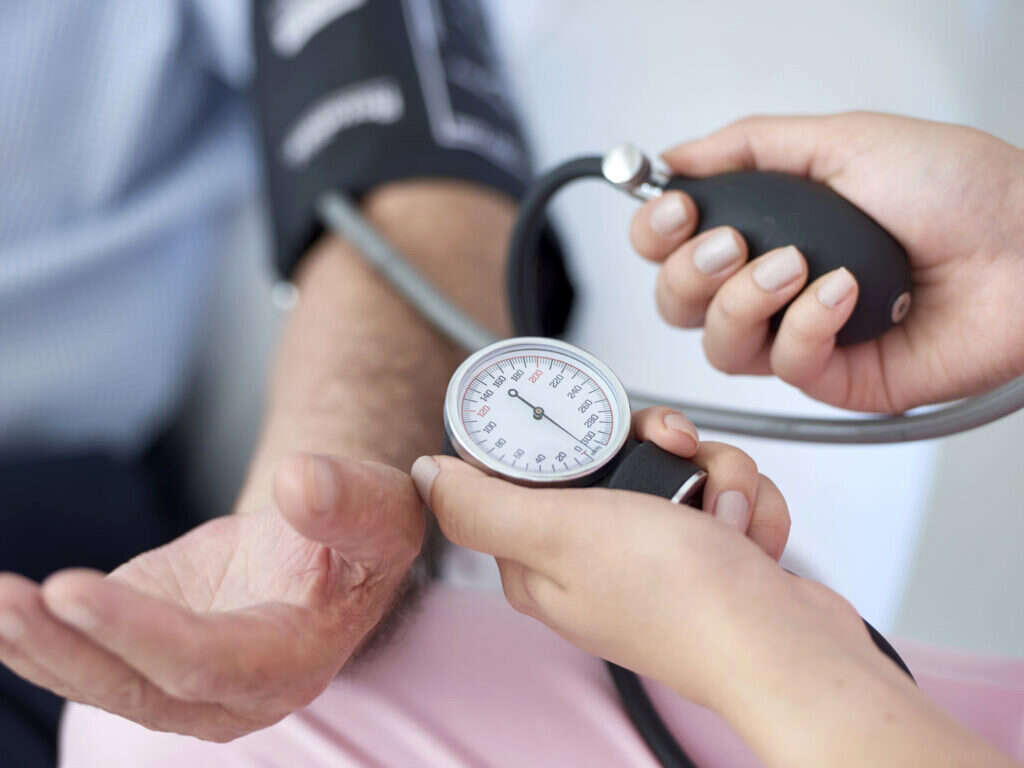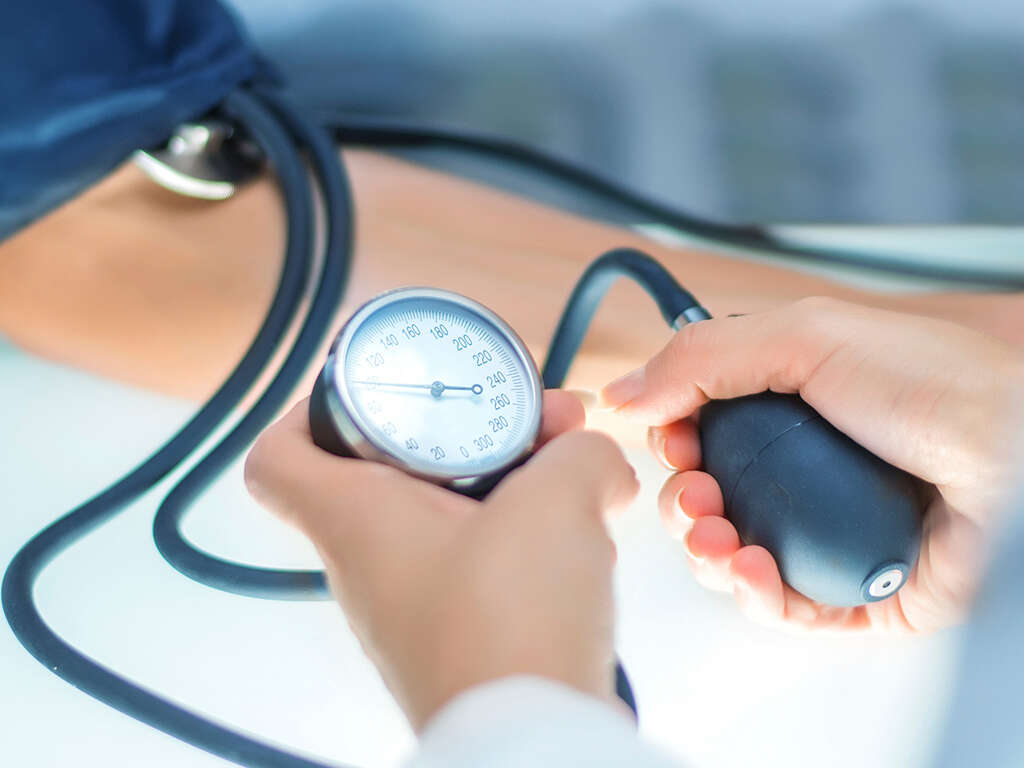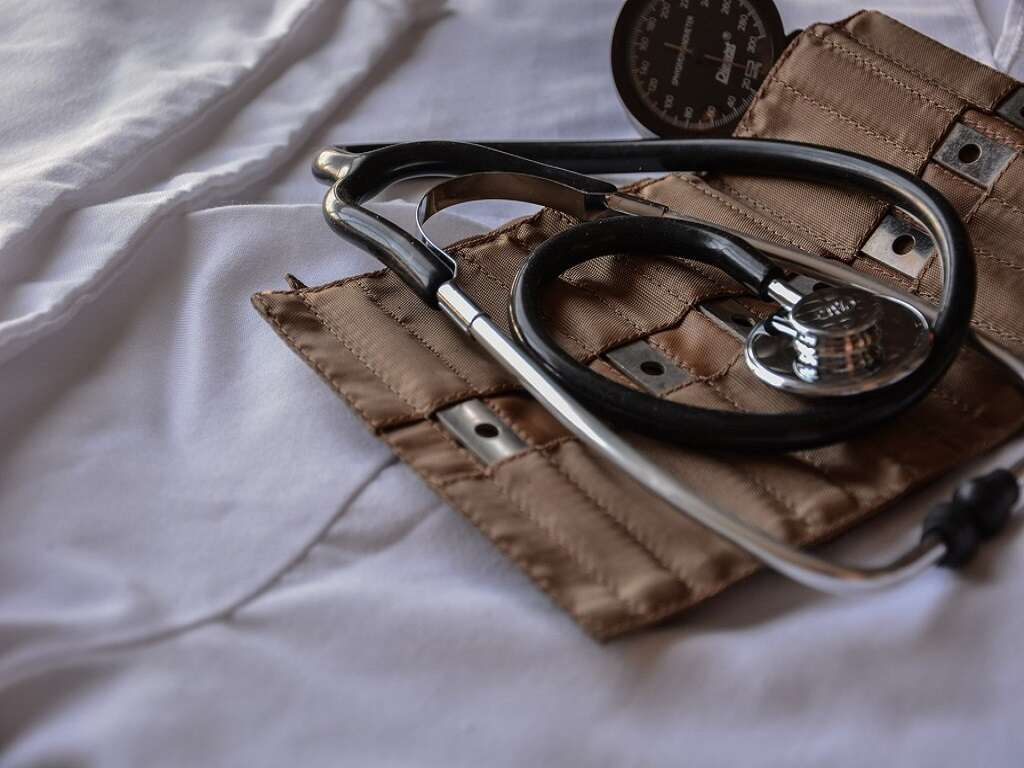10 Symptoms of Hypertension
Our blood needs to be pumped from the heart to supply our bodies with oxygen and needed nutrients. This means that it needs to be pumped at a certain pressure, and the pressure needs to be within a certain range. If the pressure is too low then the flow will be insufficient, if it is too high then problems can occur.
Hypertension is also known as high blood pressure. If left untreated it can lead to some very serious complications, including heart disease. The good news is that hypertension can often be treated, usually with a healthy diet and sufficient exercise. Here’s a look at some of the signs that you could be suffering from hypertension.
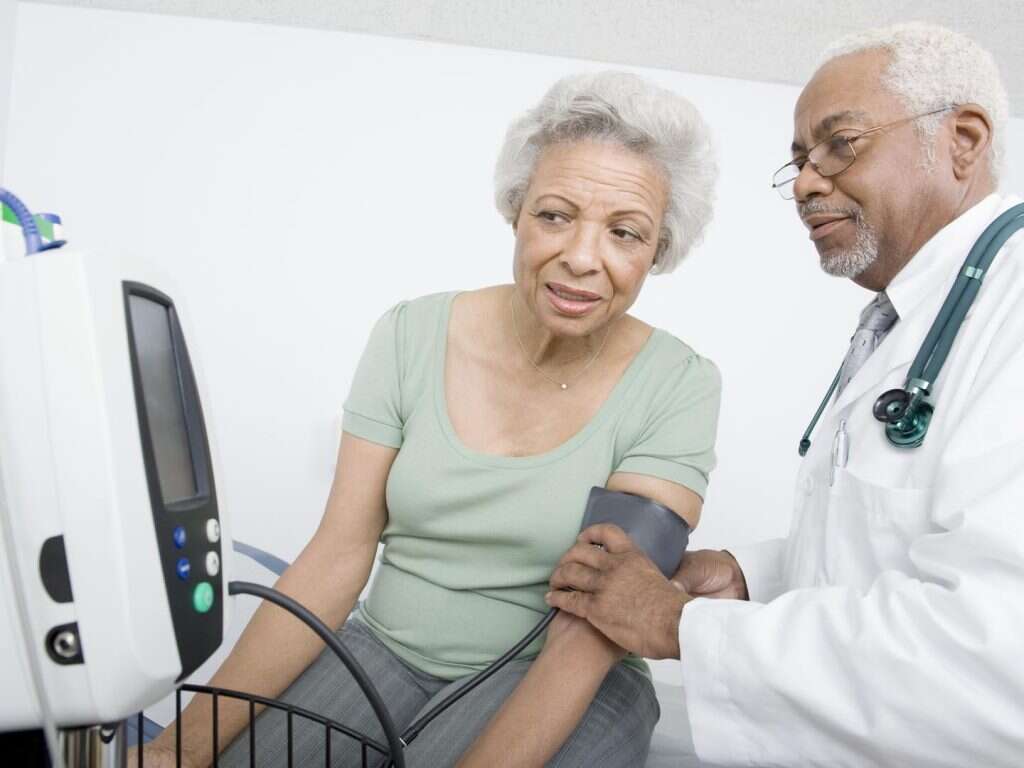
Symptom #1: Flushing
It’s not uncommon for our faces to become flushed. It could be a result of being embarrassed, or just being too hot. Some people will also experience a flushing of the face when consuming alcohol or other drugs. Flushing of the face can also be an indicator of an underlying condition such as hypertension.
Hypertension can cause dilation of the blood vessels in the face to dilate, filling them with blood. This brings blood closer to the surface of the skin, causing us to turn red. It is most noticeable in the cheeks but can also occur in the neck and the chest.

Symptom #2: Nervousness
We are all likely to experience times when we are feeling a little on edge. It could be an upcoming operation or maybe a job interview; certain events can make it difficult for us to relax. Some people handle it better than others, though, while some people can become nervous over fairly minor situations.
Somebody with a high blood pressure is more likely to feel nervous than those that don’t. At times, it may be unwarranted with nothing for the patient to be nervous about. This can bring in the typical symptoms of nervousness, such as trembling, sweaty hands, an upset stomach and feeling out of breath.

Symptom #3: Insomnia
Most of us will have difficulty sleeping sometimes. It can be caused by a range of things such as worrying, too much disturbance or even a change in the weather. The following day can be quite difficult to get through but thankfully it doesn’t usually happen too often.
For some unfortunate people, though, a lack of sleep can be a very serious problem. It can cause the patient to feel tired all of the time and to sleep at inappropriate times, potentially having a detrimental effect on the quality of their lives. Insomnia is a symptom of hypertension and medication may be able to help in some cases.

Symptom #4: Migraines
While headaches are fairly common in people, relatively few people will experience a migraine. Migraines differ from headaches in that they cause a throbbing sensation in one side of the head, and the pain can be unbearable. It can also be long lasting and can be debilitating.
Migraines can be caused by a number of things, including hypertension. Symptoms also include flashes and tingling in the body. If you do experience painful migraines or headaches often, you should speak with a doctor to try and get a diagnosis. Medicines may be able to alleviate the pain to some degree.

Symptom #5: Abnormal Heartbeat
Our hearts are pumping away all day, every day, and they usually pump at a fairly regular beat. Our hearts run at a steady rhythm as blood is first pumped from one chamber to another, and then pumped throughout the rest of the body. Some conditions, however, can cause the heartbeat to become irregular, and hypertension is one of them.
An abnormal heartbeat is often experienced as a pounding sensation in the chest. It can be quite uncomfortable and is sometimes quite alarming. If you are experiencing such sensations then you should arrange to see a doctor as soon as you can, regardless of the suspected cause.

Symptom #6: Excessive Perspiration
Our ability to sweat is one of the unsung heroes of our evolutionary development. It gave us numerous advantages that helped us to thrive and become the successful species we are. Still, though, it can often be quite awkward and can potentially lead to some embarrassment.
There is usually an explanation for sweating a lot, the most common being that we are too hot and are sweating to try and cool down. If you are sweating for no apparent reason, though, then it could be a sign of an underlying problem. Excessive perspiration is a symptom of hypertension so it is something that should be checked out.
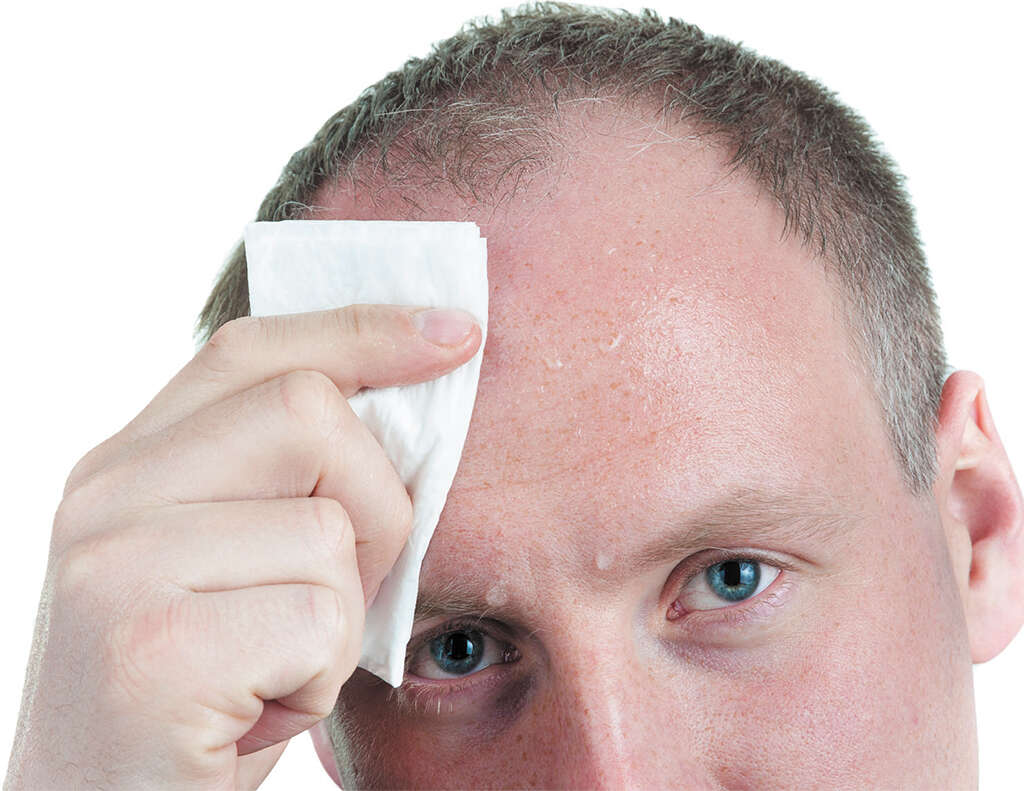
Symptom #7: Red Eye
If you get something in your eye then it could quite easily become red and sore. Red eye could also be caused by a smoky atmosphere and by allergies, while it could also be caused by being very tired. Red eye is also a symptom of having a high blood pressure so it is something that you should take notice of.
The vessels in the eye are close to the surface so when they become dilated and fill with blood, it becomes very visible. This could cause pressure on the nerves in the eyes, potentially causing permanent damage, so it is wise to get it treated.

Symptom #8: Chest Pains
A sharp pain in the chest is likely to catch your attention. Sometimes it might feel as though we are having a heart attack, which will certainly cause alarm. Not all chest pains are a sign of a heart attack, though, but it is still something that should never be taken lightly.
Somebody that has hypertension may feel a dull, aching sensation in the chest or maybe an intense, sharp pain. The pain can also travel to the arms, jaw and neck and can come and go. If you are experiencing such symptoms then you should waste no time in arranging to see a doctor.
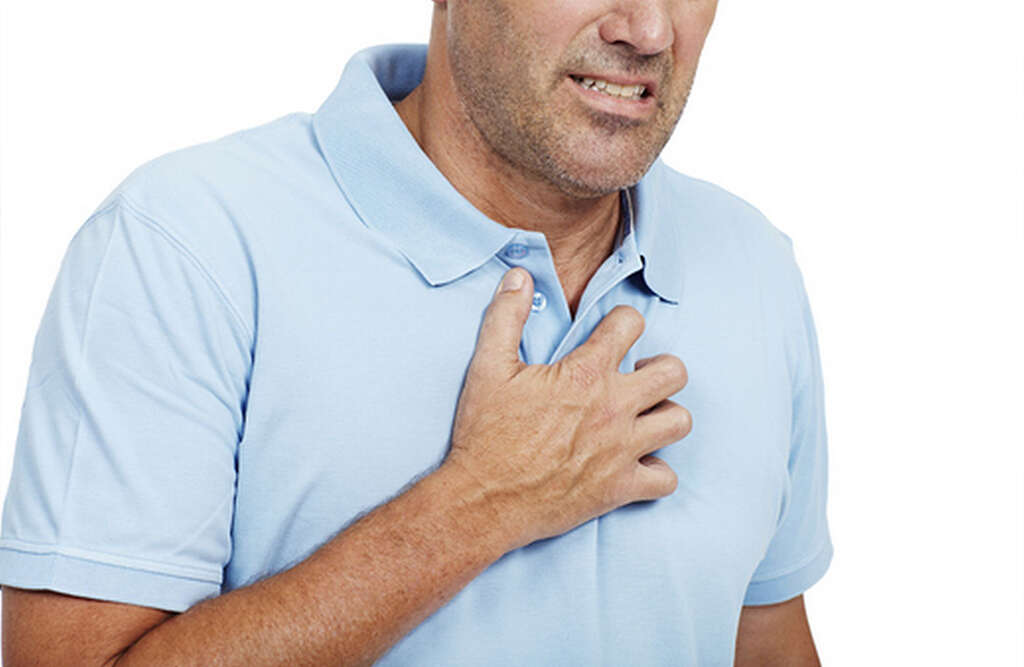
Symptom #9: Hematuria
Waste liquids are passed from the body in urine. It will contain waste that has been filtered from our body by the kidneys and then passed to the bladder where it accumulates until it is ready to be passed. The appearance of the urine that we pass can tell us a lot about our health, and warn us of problems in our bodies.
Some people might notice that there is a small amount of blood in their urine. This can be caused by a number of conditions and is an indicator that you could have hypertension. Blood in the urine could mean that there is something quite seriously wrong so you should make an appointment to see a doctor as soon as you can.

Symptom #10: Nosebleeds
The insides of our nostrils are lined with a soft, thin tissue that is easily broken, while it also has a lot of blood vessels that are very close to the surface. This means that bleeding from the nose can occur quite easily and sometimes with no physical injury taking place.
High blood pressure can cause the blood vessels in the nose to burst, leading to a nosebleed. This is sometimes overlooked as being a result of being caused by something quite harmless. If you do experience nosebleeds regularly for no apparent reason, you should arrange to get it checked out by a doctor.
